Many of the Chamber’s Office Bearers are also NPC Deputies or CPPCC National Committee Members. Earlier, they attended the annual plenary sessions of the NPC and the CPPCC National Committee (“Two Sessions”) to express their views on issues such as the economic development and social livelihoods of the country and Hong Kong as well as the response to the fifth wave of the epidemic, actively involving themselves in government and political affairs.
Ian Fok: Reconstruction of port and promotion of culture for full reunification
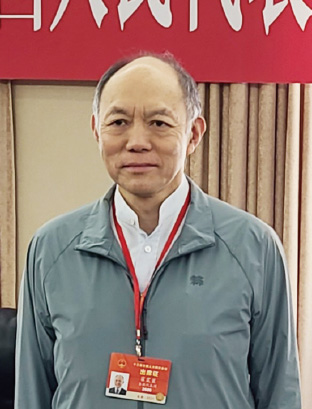
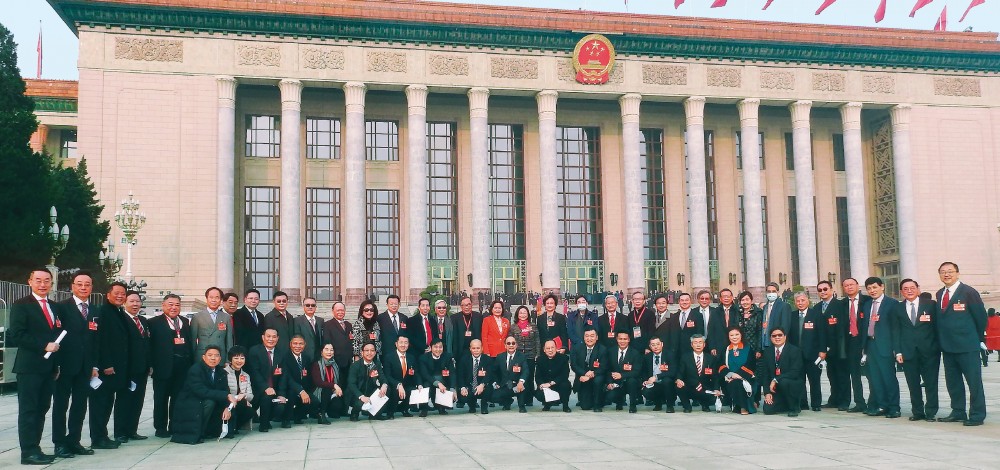 Ian Fok, the Chamber’s Life Honorary Chairman (Deputy to the NPC), is very much mindful of Hong Kong’s integration into overall national development as it has been one of the focus topics of the “Two Sessions” in recent years. Therefore, the proposal he submitted this year is about this topic.
Ian Fok, the Chamber’s Life Honorary Chairman (Deputy to the NPC), is very much mindful of Hong Kong’s integration into overall national development as it has been one of the focus topics of the “Two Sessions” in recent years. Therefore, the proposal he submitted this year is about this topic.
地Firstly, on the front of technology development, Fok says while the Greater Bay Area boasts dynamic and essential innovation resources, there is scope for improvement in the transfer rate of innovation results, technology innovation policy provision, collaboration between the industrial, academic and research sectors, as well as professional team building. He therefore suggests linking up Hong Kong and Macao’s innovation resources with the Greater Bay Area while strengthening policy provision and accelerating the consolidation of innovation fundamentals to drive technology and innovation development in the Greater Bay Area.
Geographically, Fok believes that promoting the reconstruction of the Luohu Port has great significance since it is the main port connecting Hong Kong and the Mainland. He suggested to extend Hong Kong’s East Rail Line to the Luohu District and implement various cross-border facilitation measures to improve the efficiency of customs clearance.
With regard to culture, Fok pointed out that although Hong Kong has made great achievements in “one country, two systems”, it has not yet achieved “cultural reunification”, which he believes should be promoted in multiple aspects such as social values, ideological education in schools, the public sector and the integrated development of the Guangdong-Hong Kong-Macao Greater Bay Area (Greater Bay Area). Especially regarding youth development, Fok noticed that more and more young people are now entering the Greater Bay Area, so a youth development system should be set up for the Greater Bay Area to help young people in Hong Kong and Macau better integrate into the motherland. He said that all these could be done by strengthening policies, lowering thresholds, providing funding, and innovating education.
Fok had focused on the development of martial arts for many years, and this year was no exception as he made suggestions for the coordinated development of martial arts in the Greater Bay Area. He pointed out that martial arts are deeply rooted in the Greater Bay Area where the unique cultural atmosphere is conducive to the succession of martial arts. Therefore, he suggested to facilitate the coordinated development of martial arts in all parts of the Greater Bay Area by means of organizing alliances and education, with the aim of helping Chinese kung fu go international.
For this year’s “Two Sessions”, Fok said that he had no choice but to take leave of absence to protect other participants and reduce the risk of transmission because some employees of his company were listed as close contacts of people infected with COVID-19. He felt deeply disappointed about this. He also said that the “Two Sessions” took place in the final year of the current CPPCC and at a critical moment for the country’s development. At the new historical juncture, the country has delivered excellent results, while Premier Li Keqiang’s work report has given him strong confidence. Therefore, although he did not attend the “Two Sessions” in person, he hoped that the suggestions he provided would enable Hong Kong to set sail and ride the waves of progress together with the motherland.
Jonathan Choi: Power nation demeanor shown at “Two Sessions”
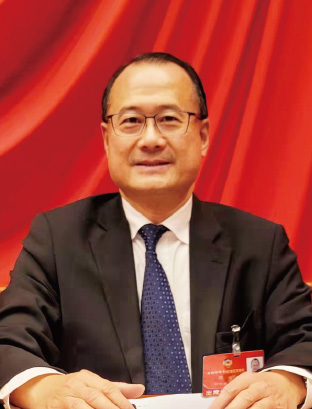
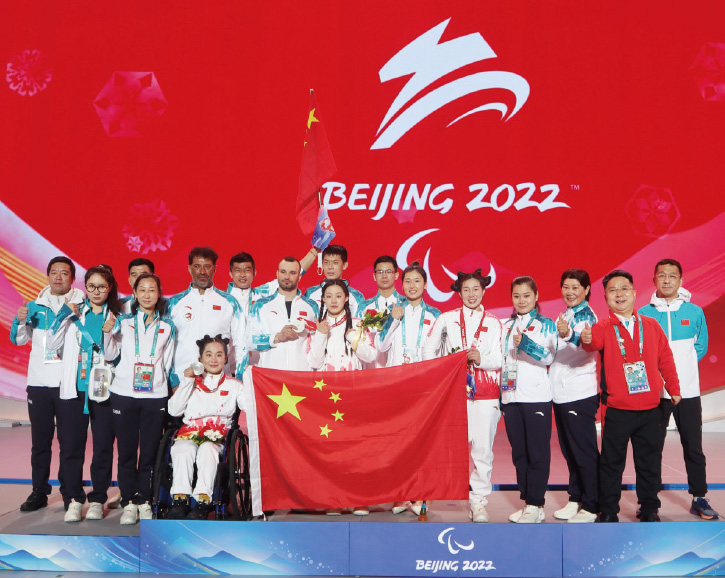 Speaking on the “Two Sessions”, Jonathan Choi, the Chamber’s Permanent Honorary President (CPPCC National Standing Committee Member) shared four key insights. Firstly, the current “Two Sessions” is highly efficient and effective. As the current term of CPPCC approaches its end, the seven-day agenda was truly important, and members conscientiously performed their duties. Those who were in Hong Kong also participated through various channels and their hard work did not disappoint.
Speaking on the “Two Sessions”, Jonathan Choi, the Chamber’s Permanent Honorary President (CPPCC National Standing Committee Member) shared four key insights. Firstly, the current “Two Sessions” is highly efficient and effective. As the current term of CPPCC approaches its end, the seven-day agenda was truly important, and members conscientiously performed their duties. Those who were in Hong Kong also participated through various channels and their hard work did not disappoint.
Secondly, they demonstrated China’s fortes in mobilization and co-ordination. The “Two Sessions” coincided with the Paralympic Games. Both mega events with top anti-COVID requirements were organized in Beijing, where global participants were welcomed. The demeanor and fundamental strengths of a power nation are distinctly reflected.
Thirdly, the sessions illustrated how Chinese state leaders have grasped the complexities at home and abroad. The world was in rumbles right before the sessions. Despite the Russo-Ukrainian war and the worsening COVID situation in Hong Kong, the Party Central Committee headed by President Xi Jinping calmly responded. Towards the end of the sessions, Sino-Russian relations were strengthened, and the overall war situation was confirmed. Country leaders of Germany and France are talking to President Xi directly without involving the US The overall situation is turning better.
Finally, the sessions also showed how much the highest political authorities care for Hong Kong, as well as how closely connected are all Chinese nationals and Hong Kong residents. Vice Premier Han Zheng summed up the Central Government’s response to all of Hong Kong’s anti-pandemic requests in Beijing - “whatever is asked for, we will provide all”. The heartfelt warmth of these words was sent to Hong Kong and was much appreciated by its 7 million citizens!
Ricky Tsang: Address education pain points and promote youth exchanges
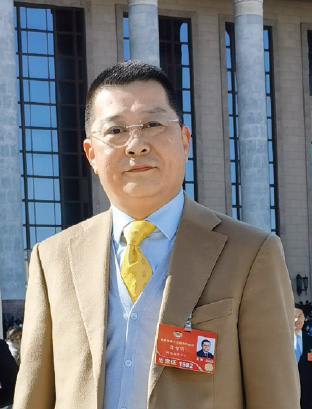
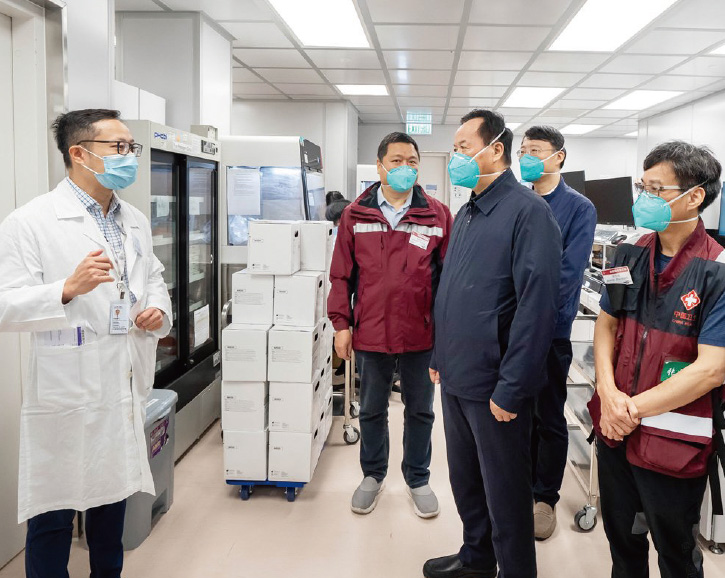 More and more Hong Kong and Macau professionals intend to further their career in the Greater Bay Area, but they often hesitate to get going because of their children’s education. With this in mind, Ricky Tsang, the Chamber’s Vice-Chairman (CPPCC National Committee Member), put forward suggestions in this regard and other youth issues at this year’s “Two Sessions”.
More and more Hong Kong and Macau professionals intend to further their career in the Greater Bay Area, but they often hesitate to get going because of their children’s education. With this in mind, Ricky Tsang, the Chamber’s Vice-Chairman (CPPCC National Committee Member), put forward suggestions in this regard and other youth issues at this year’s “Two Sessions”.
Tsang said that further improving the basic education system for Hong Kong and Macau children in the Greater Bay Area is a key measure to drive the integration of Hong Kong and Macau into overall national development. However, there are currently not enough schools or specific classes for these children to meet the huge demand. He therefore suggested the Mainland’s Ministry of Education to plan on setting up a certain number of public schools or classes for Hong Kong and Macau children in all the nine Mainland cities in the Greater Bay Area, and adopt a special policy measure to allow Hong Kong’s school-running bodies to set up schools for Hong Kong and Macau children in the Greater Bay Area. Such schools should mainly focus on the Hong Kong-style teaching model and use the general curricula of Hong Kong and Macau (mainly Hong Kong) primary and secondary schools. This would address the pain points for people in Hong Kong and Macau who intend to further their career in the Greater Bay Area, laying a solid foundation for promoting the development of the Greater Bay Area and realising the reunion of Hong Kong’s people with the country in both minds and hearts.
In addition, Tsang observed that some Hong Kong youths are feeling daunted about integrating into the development of the Greater Bay Area amid the epidemic that has been going on for over two years. Therefore, he also suggested the relevant authorities of Guangdong to work with the HKSAR Government and youth groups that love the country and Hong Kong to fully consolidate the online youth exchange platforms in the Greater Bay Area and hold activities such as “online exchange festival for youths in the Greater Bay Area” so that even in an environment of normalised epidemic prevention and control, it is still possible to boost Hong Kong youths’ understanding of the Greater Bay Area and deepen youth exchanges in the region in order to achieve the goal of facilitating their participation in the development of the Greater Bay Area and, in turn, integration into overall national development.
Hong Kong was in the midst of a severe epidemic during this year’s “Two Sessions”. Tsang pointed out that there had been a lot of coordination made by the relevant departments to make it possible for Hong Kong’s NPC and CPPCC delegates to travel to Beijing and to participate in the meetings at the same venue, which fully demonstrated the importance that the Central Government attaches to the Hong Kong delegates. In addition, Tsang said that the proceedings of this year’s “Two Sessions” were concise and to the point, e.g., only the condensed versions of the reports on the work of the Supreme People’s Court and the Supreme People’s Procuratorate were read out. Tsang described this as a kind of progress. In his view, the country cares a lot about Hong Kong, e.g., Vice-Premier Han Zheng’s meeting with the CPPCC National Committee members from Hong Kong and Macau showed that the country is very concerned about the epidemic situation in Hong Kong. He looked forward to the CPPCC National Committee members, just like what Han said, fully working with the HKSAR Government on fighting the epidemic to achieve the goal of “the Government staying responsive to the call of the people at all times”.
Connie Wong: Digital economy-driven development of Greater Bay Area
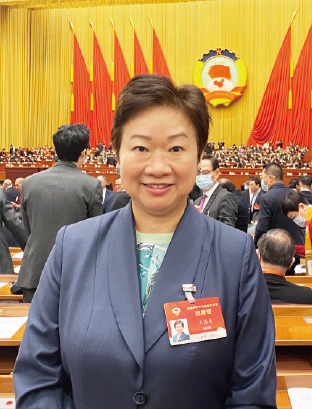
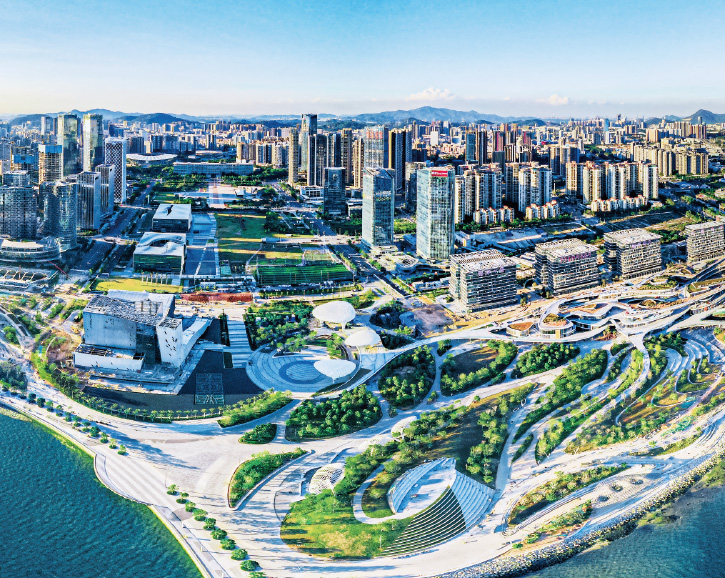 Connie Wong, the Chamber’s Vice-Chairman (Deputy Director of the Committee for Handling Proposals of the CPPCC, CPPCC National Committee Member) focused on the development of the digital economy and the Greater Bay Area in making her suggestions at this year’s “Two Sessions”. Data showed that China’s digital economy expanded from RMB 1 trillion in the 13th Five-Year Plan period to RMB39.2 trillion (38.6% of its GDP), and was growing at a double-digit rate annually, clearly pointing to a bright development prospect.
Connie Wong, the Chamber’s Vice-Chairman (Deputy Director of the Committee for Handling Proposals of the CPPCC, CPPCC National Committee Member) focused on the development of the digital economy and the Greater Bay Area in making her suggestions at this year’s “Two Sessions”. Data showed that China’s digital economy expanded from RMB 1 trillion in the 13th Five-Year Plan period to RMB39.2 trillion (38.6% of its GDP), and was growing at a double-digit rate annually, clearly pointing to a bright development prospect.
Wong said that the digital economy is an emerging form of economy based on three major elements: big data, intelligent algorithms, and computing platforms. This is because the digital economy cannot function without big data, cannot create value without intelligent algorithms, and can no longer exist without computing platforms. Among them, big data, as a new strategic resource in the digital age and a key factor driving innovation, is changing the production methods and lifestyles of human beings.
The Greater Bay Area, which is an important region for the development of the country’s digital economy, can leverage its favourable conditions to drive the development of digital RMB. Wong suggested to experiment with promoting the international use of digital RMB in the Greater Bay Area, i.e., leverage Guangdong’s close trade ties with the Belt and Road countries, together with the digital RMB pilot program, encourage businesses in these countries to directly use digital RMB for trade with overseas businesses through international coordination, construction of laws and regulations, and infrastructure improvement.
Tommy Li: Leverage Hong Kong’s strengths in Chinese medicinal ingredients to integrate into national development
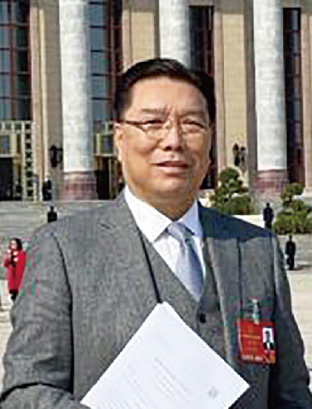
 As he is from Hong Kong’s traditional Chinese medicine (TCM) industry, Tommy Li, the Chamber’s Vice-Chairman (Deputy to the NPC), continued to focus on the development of the industry in Hong Kong and the Greater Bay Area at this year’s “Two Sessions”. In addition, he also submitted a proposal for the development of tourism amid the epidemic.
As he is from Hong Kong’s traditional Chinese medicine (TCM) industry, Tommy Li, the Chamber’s Vice-Chairman (Deputy to the NPC), continued to focus on the development of the industry in Hong Kong and the Greater Bay Area at this year’s “Two Sessions”. In addition, he also submitted a proposal for the development of tourism amid the epidemic.
Li said that medicinal ingredients from the Lingnan region, which have unique efficacy, are one of China’s valuable medicinal resources. As Hong Kong is a key distribution centre for Lingnan medicinal ingredients, he suggested the National Medical Products Administration (NMPA) to allow Hong Kong’s Government Chinese Medicines Testing Institute (GCMTI) to participate in the Chinese Pharmacopoeia Commission’s research on standards for Chinese medicines. This is because Hong Kong already has the working conditions necessary to formulate the standards for Lingnan medicinal ingredients in terms of laboratory facilities, specialized scientific researchers and corresponding technical support. Moreover, it can strengthen cooperation in the Greater Bay Area in research on standards for Chinese medicines.
In addition, with regard to trade in Chinese medicinal ingredients, Li noticed that Mainland provinces that produce medicinal ingredients have been holding investment promotion conferences or matchmaking conferences in Hong Kong every year, but they have so far failed to achieve the purpose of international trade. Hong Kong now has excellent conditions for a platform to promote the development of trade in Chinese medicinal ingredients, including a set of internationally recognized standards for Chinese medicinal ingredients and an institute for testing Chinese medicines. Therefore, he believes that including the development of Hong Kong into an international trading center for Chinese medicinal ingredients in the 14th Five-Year Plan, setting up a digital trading platform and promoting a mechanism to facilitate the exchange of information between Hong Kong and the Mainland on the traceability of Chinese medicinal ingredients can comprehensively drive the succession, development and innovation of Chinese medicines.
The promulgation of the “Construction Plan for the Chinese Medicine Highlands in the Guangdong-Hong Kong-Macao Greater Bay Area (2020-2025)” has enabled the flow and interconnection of TCM personnel, products, standards and funds in the Greater Bay Area, as well as simplified the registration and approval processes for Hong Kong and Macaoregistered traditional proprietary Chinese medicines intended for external use, giving people in the industry in these two places great hope for the future. With this in mind, Li suggested the Central Government to consider taking the lead in establishing a coordination mechanism for the development of TCM in the Greater Bay Area in order to implement and promote relevant development strategies more smoothly, which will help all parties unify their pace and direction of development.
Regarding the epidemic-hit tourism industry of the two places, Li suggested to look for ways to encourage tourism practitioners to upgrade their academic qualifications during this period so that they have more flexibility in career development. In addition, the authorities could hold a nationwide tourism innovation competition to help the industry transform, upgrade and recover. He also suggested the governments to jointly build a platform for mutual assistance between the agriculture and tourism industries and mutual integration between the sports and tourism industries to help tourism practitioners develop across industries so that they can get out of unemployment.
Herman Hu: Promote scientific research and education and advocate keeping fit
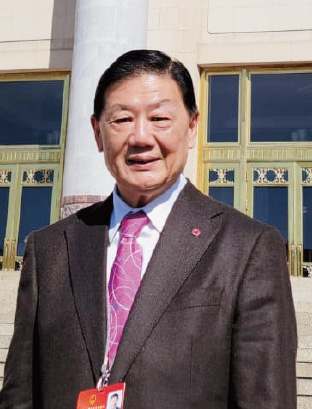
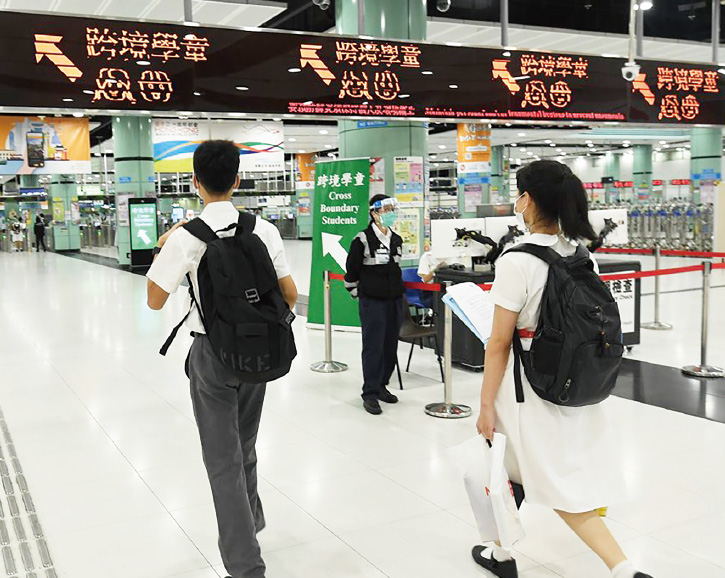 The Mainland’s scientific research achievements in recent years are clearly outstanding and also a powerful force for economic and social progress. Herman Hu, the Chamber’s Vice-Chairman (Deputy to the NPC), keeps a close eye on the development of scientific research and nurturing of relevant talents, so he submitted a proposal on scientific research and education at this year’s “Two Sessions”, where he also presented his views on culture and education.
The Mainland’s scientific research achievements in recent years are clearly outstanding and also a powerful force for economic and social progress. Herman Hu, the Chamber’s Vice-Chairman (Deputy to the NPC), keeps a close eye on the development of scientific research and nurturing of relevant talents, so he submitted a proposal on scientific research and education at this year’s “Two Sessions”, where he also presented his views on culture and education.
Hu noticed that the country has attached great importance to brain science research in recent years and successively included it in the 13th Five-Year Plan and the 14th Five-Year Plan, which is a forward-looking strategic deployment. Therefore, it is necessary to speed up the development of brain science research in order to achieve the goal of becoming a world power in science and technology. In his view, the Greater Bay Area could consider becoming a national core engine in the fields of biotechnology and brain science research, and drive pilot policies for biotechnology reform. In addition, it must introduce supporting policies, such as providing green channels for the adoption of clinical trial results and core technologies that have been accepted by overseas institutions so that they can be introduced into the country as soon as possible. Regarding technology education, Hu believes that efforts must be made to train innovation and technology (I&T) talents, so he suggested that schools should hold more extracurricular activities related to technology to increase students’ interest in engaging in I&T. In addition, the courses should be continuously reviewed by technology experts to enhance programming education, and schools should pay more attention to career planning courses for students so that they can make up their minds about their aspirations and move towards their goals as early as possible.
Hu, who has long been mindful of sports development in Hong Kong, believes that besides studying, students should also master the skills in at least one or two sports to improve their health. He suggested to step up the promotion of traditional Chinese sports in schools to advance Chinese culture while keeping students fit. The Government could also launch a “Sports For All Day” to encourage a healthy life for all. Separately, food is not only the source of health, but also the foundation of culture, and Hu pointed out that Chinese food culture is broad and profound, so a Chinese food culture steering group should be set up through the Central Government to put in place a plan to promote food culture so that the world can have a better understanding of the country's fine, long-standing tradition.
Hu believes that it is worthwhile for Hong Kong to learn from the country’s fruitful achievements attained this year, including strong economic growth and increased employment opportunities. It is indeed remarkable to still be able to participate in the “Two Sessions” even though Hong Kong was facing a severe epidemic situation. Besides getting a first-hand experience of the Mainland’s rigorous and serious approach in the fight against the epidemic, he also witnessed Beijing’s clear weather and fresh air for many days, with a blue sky and white clouds appearing on every one of those days. It is evident that the country also attaches great importance to environmental protection during its rapid development, and the progress is significant.
Rock Chen: “One Country, Two Systems” does not need changing after first 50 years
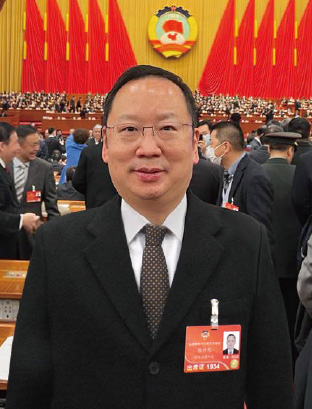
 Referring to his experience from attending this year’s “Two Sessions”, Rock Chen, the Chamber’s Vice-Chairman (CPPCC National Committee Member), said that what impressed him the most are two important messages conveyed in the remarks made by Vice-Premier Han Zheng and CPPCC Vice-Chairman Xia Baolong when they met with Hong Kong’s delegates to the CPPCC: Firstly, they hope the people of Hong Kong have absolute confidence in “One Country, Two Systems” because it is the best political arrangement for Hong Kong. Citing a famous Deng Xiaoping quote, Xia said that “One Country, Two Systems” will remain unchanged for 50 years and does not need to be changed after the first 50 years.
Referring to his experience from attending this year’s “Two Sessions”, Rock Chen, the Chamber’s Vice-Chairman (CPPCC National Committee Member), said that what impressed him the most are two important messages conveyed in the remarks made by Vice-Premier Han Zheng and CPPCC Vice-Chairman Xia Baolong when they met with Hong Kong’s delegates to the CPPCC: Firstly, they hope the people of Hong Kong have absolute confidence in “One Country, Two Systems” because it is the best political arrangement for Hong Kong. Citing a famous Deng Xiaoping quote, Xia said that “One Country, Two Systems” will remain unchanged for 50 years and does not need to be changed after the first 50 years.
Secondly, Chen said that he deeply felt the Central Government’s care and love for Hong Kong when discussing the assistance for Hong Kong in the fight against COVID-19. “The Central Government immediately took measures to deploy manpower to help when became aware of Hong Kong’s shortage of medical personnel and testing capacities, ensure an uninterrupted supply of daily necessities when learned of its insufficient supply of materials, and assist in constructing makeshift hospitals when informed about its dearth of hospitals and isolation facilities. As Han said: ‘The Central Government will take in all Hong Kong’s requests for help.’”
Regarding the country’s overall development, Chen said that the Mainland achieved remarkable results in both epidemic prevention and control as well as economic development despite the raging epidemic and volatile international situation last year, including an annual GDP growth of 8.1% in 2021. This is no mean feat. “It has been possible only because of the unity of the people of the country under the leadership of the Communist Party of China. I would describe the country’s development strategy from last year to this year as: Make stability a top priority while pursuing progress. I hope that the country can continue this momentum.”
Charles Cheung: Honored to work for the country and fellow nationals
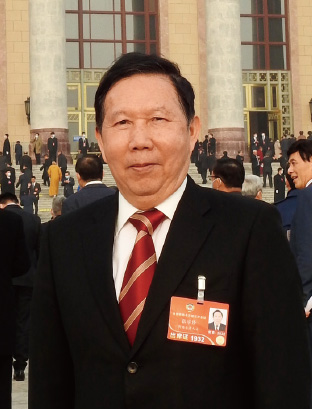
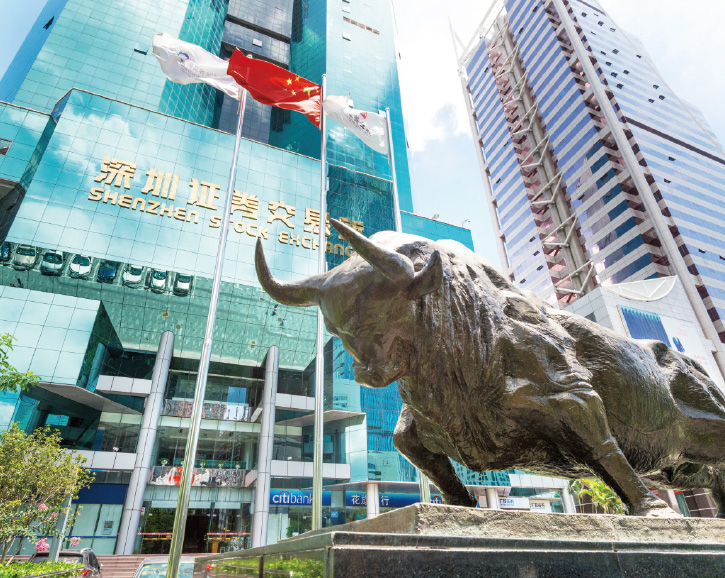 Charles Cheung, the Chamber’s Vice-Chairman (CPCCC National Committee Member) considered this year’s “Two Sessions” a showcase of the robust plans of Chinese leaders for coordinating COVID measures and for fostering economic and social development. He was very honored to be able to attend as scheduled. During the “Two Sessions”, CPPCC members enthusiastically discussed in groups and expressed their views on topics that are closely related to social economic development as well as issues and difficulties that nationals care much about. He was very honored to have fulfilled his duties and responsibilities for the country and Chinese nationals with other CPPCC members by making constructive recommendations to policies.
Charles Cheung, the Chamber’s Vice-Chairman (CPCCC National Committee Member) considered this year’s “Two Sessions” a showcase of the robust plans of Chinese leaders for coordinating COVID measures and for fostering economic and social development. He was very honored to be able to attend as scheduled. During the “Two Sessions”, CPPCC members enthusiastically discussed in groups and expressed their views on topics that are closely related to social economic development as well as issues and difficulties that nationals care much about. He was very honored to have fulfilled his duties and responsibilities for the country and Chinese nationals with other CPPCC members by making constructive recommendations to policies.
At the “Two Sessions”, the annual economic growth target was set at 5.5% for 2022, which matches with the current circumstances of the Chinese economy. It is an active response to the changes in the environment in China and beyond. It shows that China is striving for steady advancement, which would in turn facilitate sustainability. For Hong Kong, this is also a revelation that the economic fundamentals of China have not changed. On the other hand, the vitality of market entities and risk resilience are both continuously improving. When faced with complex international circumstances and COVID-19, the definite path for Hong Kong’s economic growth is to integrate into national development.
As a Hainan native Hong Kong businessman, Cheung added that he has a keen interest in the construction of the Hainan Free Trade Port. As such, a highlight of his recent proposals was about fostering the joined-up development between the Guangdong-Hong Kong-Macao Greater Bay Area and the Hainan Free Trade Port. On the other hand, as young people are the future of our country, the 14th Five-year Plan and the construction of the Greater Bay Area are providing Hong Kong youths with more opportunities. Cheung made some proposals on providing better policies and environments to support Hong Kong and Macao youths in establishing their businesses in the mainland. He hopes to give them a hand for integrating into national development.
David Fong: Hong Kong’s requests for support are always answered by the central government
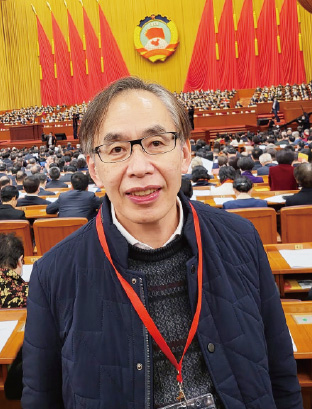
 The “Two Sessions” this year were held at a time when Hong Kong was hit by the fifth wave of COVID. David Fong, the Chamber’s Life Honorary Chairman (CPPCC National Committee Member) opined that he had witnessed in Beijing the stringent control and prevention, as well as the outstanding fruition of the Chinese fight against the COVID virus. He also felt the strong support and keenness of the central government to respond to Hong Kong’s request for anti-COVID support. With our motherland as our strong back up, Fong is confident that Hong Kong people will live up to expectations and win this pandemic battle.
The “Two Sessions” this year were held at a time when Hong Kong was hit by the fifth wave of COVID. David Fong, the Chamber’s Life Honorary Chairman (CPPCC National Committee Member) opined that he had witnessed in Beijing the stringent control and prevention, as well as the outstanding fruition of the Chinese fight against the COVID virus. He also felt the strong support and keenness of the central government to respond to Hong Kong’s request for anti-COVID support. With our motherland as our strong back up, Fong is confident that Hong Kong people will live up to expectations and win this pandemic battle.
At the CPPCC meeting, Vice Premier Han Zheng also mentioned that many provinces, municipals, towns, cities and companies are eager to help Hong Kong fight COVID. Such kinship of compatriots is invaluable. Yet, helping hands from all directions could also bring about confusion. In the end, it was the effective coordination of the central government that saved the day.
CPPCC Chairman Wang Yang, on the other hand, said that, “We are now witnessing a once-in-a-century and rapidly evolving global situation. The mission to reform and to stabilize development is very important. There are many conflicts, risks and challenges that are unprecedented for any country’s governance. Therefore, Chinese nationals must be more united than ever before”. Fong thought that Wang’s speech is inspiring and encouraging. He agreed that concertedness is crucial for tackling challenges.
Fong believed that Hong Kong must thoroughly understand the latest development of China before it can integrate into national development. Premier Li Kexiang elaborated on China’s development blueprint in the government work report. Some important missions include promoting the development of digital economy, fostering the digital transformation of industries, etc. Hong Kong as an international financial center cannot slow down on growing into a smart city. At the same time, it could develop high-end industries that are specialized, unique, professional and new in the Greater Bay Area, which could create more growth opportunities for Hong Kong youth.




